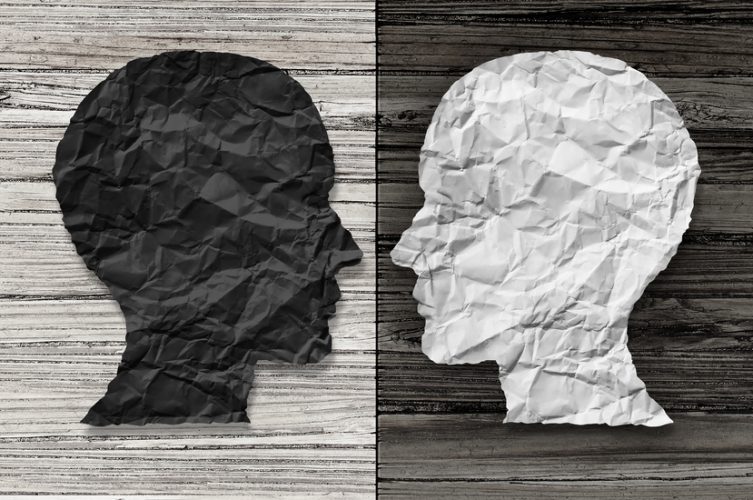Men's Health is the brand men live by for fitness, nutrition, health, sex, style, grooming, tech, weight loss, and more.
Wednesday, 4 September 2019
Is It A Diet or An Eating Disorder?
I had been in outpatient therapy for six months. I was seeing a dietitian. I was made to attend an eating disorder support group. Even given all those interventions, if you asked me, I didn’t have an eating disorder. I was a healthy eater who maybe had a few “funny” things around food. It’s hard to tell the difference between a diet and an eating disorder for some.
I was reminded of this recently when a colleague posted an article to her Facebook page discussing “orthorexia nervosa,” a term that is gaining traction with regards to the growing obsession with healthy or “clean” eating. This particular article centered its thesis on the idea that isn’t really an eating disorder, but, rather, a way to pathologize people and prescribe them medications. I wanted to track down the author and have a strongly worded chat with him.
But it’s National Eating Disorders Awareness Week and it brings up the question: when does an eating disorder become an eating disorder and not just a diet or something else?
Eating Disorders Disrupt Your Life, Diets Probably Don’t
In my class about diagnosis and assessment in counseling, we had a saying: “It’s not a problem unless it’s a problem.” There are plenty of people in the world who can eat vegan or vegetarian or raw diets and have that enhance their life and health. Or people who can run or train for triathlons and enjoy the endorphins without overdoing it. Or people who can overeat occasionally and then just get back to their normal eating the next meal or next day.
When you have an eating disorder, you can’t do that. When you have an eating disorder, your ability to function in day-to-day life is compromised. Your job, your family life, your friendships, your studies – all of these are affected.
I frequently stayed out past midnight in my eating disorder because I refused to miss a workout, even though it meant I was constantly sleep deprived and felt ill. I avoided meals with family or friends because I couldn’t be seen eating or couldn’t eat things that I hadn’t prepared. Restaurants? Out of the question. My meager breakfast took almost 45 minutes to eat because everything had to be measured, mixed, assembled and eaten in a very specific order. Meals were the same every single day because I knew the exact nutrition information for those two or three things. Substitutions were not allowed. If I binged, there were very specific consequences that often meant I had to cancel my entire day.
Maybe your eating disorder has 20 rules. Maybe it has two. Regardless, if you find yourself rearranging your life, avoiding things, or having difficulty getting things done because of food and/or exercise, you may have a problem.
Is It An Eating Disorder or a Diet?
If you are concerned about your eating habits or those of a loved one, please take the time to be screened. The National Eating Disorder Association has a quick online screening toolthat can assess your risk and connect you to resources immediately (such as their hotline and chatline).
It may not be a “textbook” case of anorexia, bulimia, or binge eating. Your eating disorder may fall into the category of other specified feeding and eating disorder (OSFED), which was previously called eating disorder not otherwise specified(EDNOS).That doesn’t make it any less serious or you any less worthy of recovery.
Subscribe to:
Post Comments (Atom)
Popular Posts
-
WHAT HAPPENS TO YOUR BODY AFTER THE HCG DIET? WHAT HAPPENS TO YOUR BODY AFTER THE HCG DIET? Your body may undergo amazing chang...
-
More Evidence Links Mediterranean Diet to Less Depression Adherence to a healthy diet, particularly the plant-rich Mediterran...
-
Do You Have Problems With Concentration And Mental Clarity? Do You Have Problems With Concentration And Mental Clarity? Low tes...
-
Alzheimer and Dementia: Experts explain how they differ… Alzheimer and Dementia: Experts explain how they differ… What is Alzhe...
Sample Texts
Erectile dysfunction (ED) is the inability to get or keep an erection firm enough to have sexual intercourse. Erectile dysfunction, also known as impotence, is a type of sexual dysfunction characterized by the inability to develop or maintain an erection of the penis during sexual activity in humans..
Tags
Blog Archive
Featured post
Alzheimer and Dementia: Experts explain how they differ… Alzheimer and Dementia: Experts explain how they differ… What is Alzhe...

Popular Posts
-
A Quick Glance Through The Benefits Of Papaya If I were to go to a fancy dress competition or if I were to become a fruit next li...
-
Does Sugar Cause Diabetes? Fact vs Fiction What Is Diabetes? Diabetes occurs when your body is no longer able to impressively r...
-
ALCOHOLIC LIVER DISEASE ALCOHOLIC LIVER DISEASE Alcoholic liver disease is a condition in which liver is damaged secondary to a...
-
When the arrival of menopause brings symptoms of depression A new study suggests that hormone therapy might help with perimenopau...
-
8 WAYS HOW PAIN CAN AFFECT YOUR LIFE! 8 WAYS HOW PAIN CAN AFFECT YOUR LIFE! Pain can be a chronic and a complex condition. It u...
Text Widget
Health is a state of physical, mental and social well-being in which disease and infirmity are ... Studies have shown that high levels of stress can affect human health. In the first decade of the 21st century, the conceptualization of health as an ..
Created with by OmTemplates | Distributed By mans health

No comments:
Post a Comment